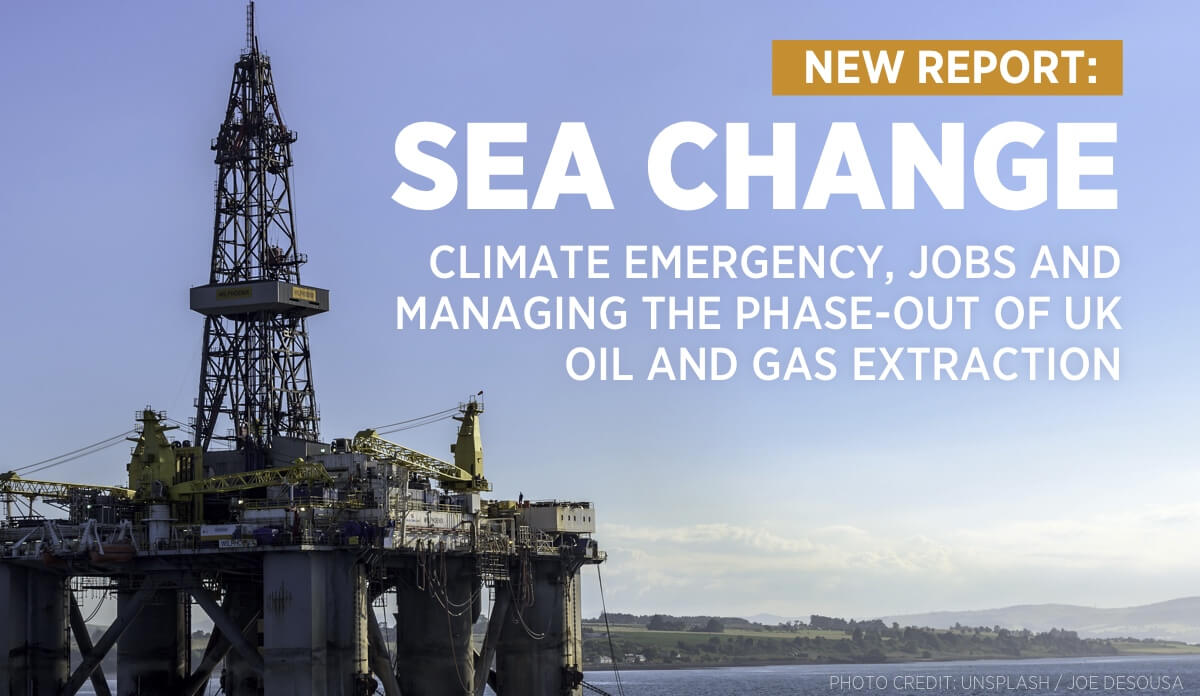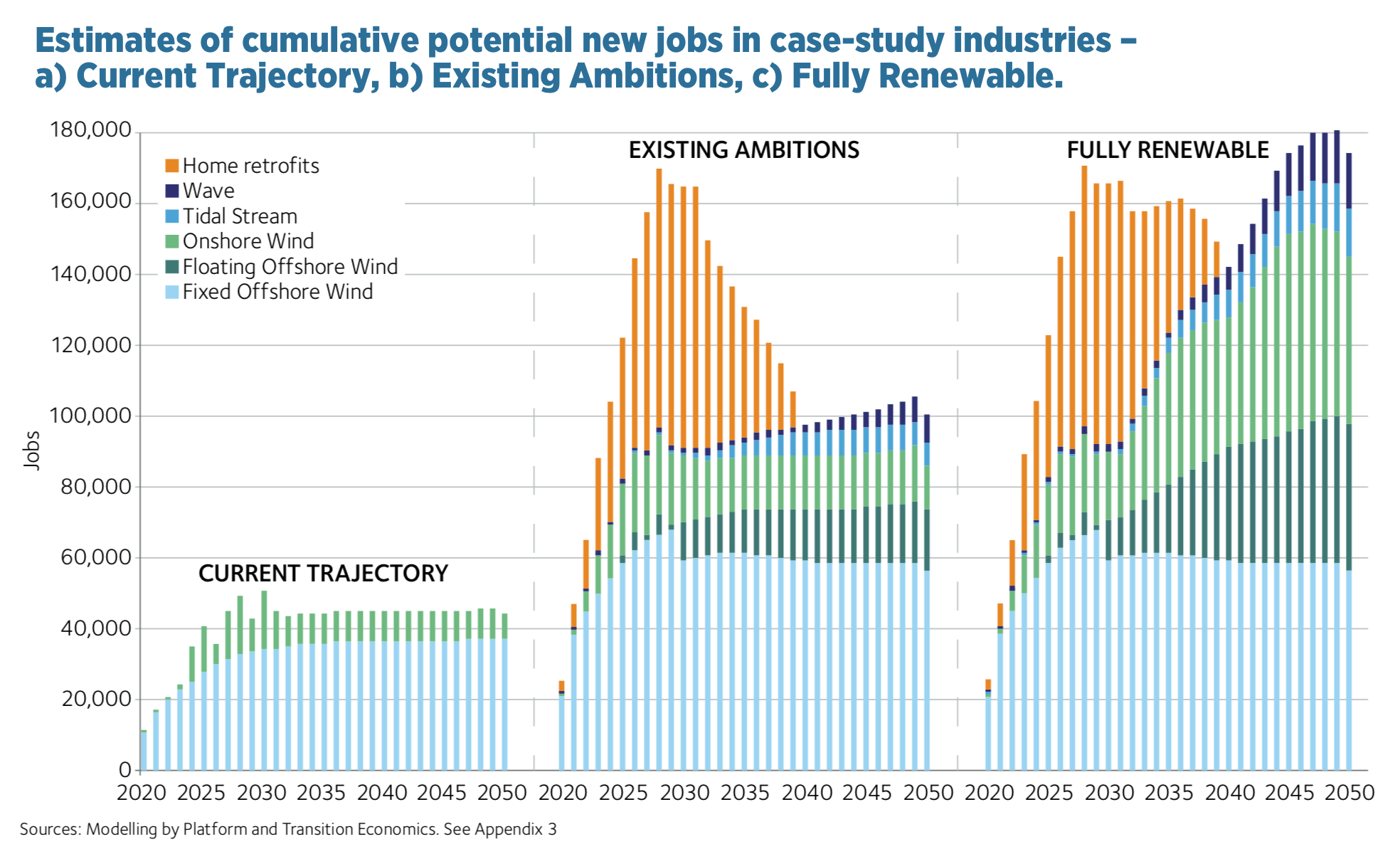We’re in a climate emergency – so why is the UK aiming to extract 20 more billions of barrels of oil?! Our research, out today, shows just how far out of touch with reality this plan is – and what the UK needs to do instead, not only to protect the climate, but also workers’ rights and industry.
The climate emergency, acknowledged last week by UK and Scottish parliaments, means we have to rapidly come off fossil fuels. The government’s Committee on Climate Change recommends a fully ‘net zero emissions’ economy by 2050, and arguably, as a nation that’s reaped its wealth in large part from other countries’ resources including fossil fuels, the UK should go fully fossil fuel free even earlier.
And yet.
The UK government is planning a 32nd round of oil and gas licences – opening up plots where oil companies could drill for over 30 years – all the way to 2050.
For 15 successive years, oil companies have paid less and less tax to the UK government. For two successive years (2015-2017) ten oil companies together not only paid no tax but received over £2 billion from the UK Treasury.
The UK government has promised to pay for decommissioning (taking down) old oil rigs in perpetuity to a scale of an estimated £30 billion or more – while companies responsible walk away.
And both government and industry talk about a target of 20 billion barrels of oil yet to extract from the North Sea.
How does all this compare to climate limits?

Together with Oil Change International and Friends of the Earth Scotland, we did the maths and it’s not looking good.
The UK’s 5.5 billion barrels of oil and gas in already operating oil and gas fields will exceed the Paris climate goals. And recent subsidies for oil and gas extraction will add twice as much carbon to the atmosphere as UK’s phase-out of coal power saves.
At the same time, at least 100,000 people in the UK work in oil and gas extraction (directly and in the domestic supply chain). Places like Aberdeen, Norfolk, and increasingly the Shetland Islands to a greater or lesser extent depend on the industry for jobs and regional prosperity.
What does this mean? The UK is headed for a “no-deal exit” from oil and gas drilling, with no plan to phase out and none to protect the workers and communities who currently depend on the oil industry.
We have to plan our way out of this. We analysed what jobs industries like offshore wind, tidal energy and energy efficiency retrofits could provide, and found out that with the right policies, these can sustain over three new jobs per oil worker potentially affected by the transition.
This won’t happen by itself. Right now, there’s few opportunities for new onshore wind farms, and virtually no government support for tidal energy or to retrofit our housing stock. Wind turbine manufactures have opened few factories in the UK, with Siemens’s Hull facility a notable exception. And some offshore windfarm developers are notorious for employing crews on less than minimum wage, in dangerous conditions. With business as usual, “green jobs” will not materialise.
Affected workers and trade unions have to have a say in the transition to clean energy will happen, and UK and Scottish governments should step in to safeguard energy workers’ rights and livelihoods: ensure trade union recognition and sectoral bargaining in “green” industries, protect wages and pensions, and offer free time off and training for those workers who need it in order to switch away from oil and gas extraction.

And our governments have to be bold and use all the tools at their disposal to actively build clean industry. National Investment Banks, like in Germany or Denmark, can help new industries set up. “Hire local” or “buy local” legislation, like in Taiwan and France, can make sure UK factories and shipyards build the renewable energy economy. And direct public ownership of energy resources by cities, regions or nationally can reap a host of other benefits. These are only some of the examples – but to meet the climate emergency and create decent jobs, every possible tool has to be put in use.
Sign our open letter to the UK and Scottish Governments below.